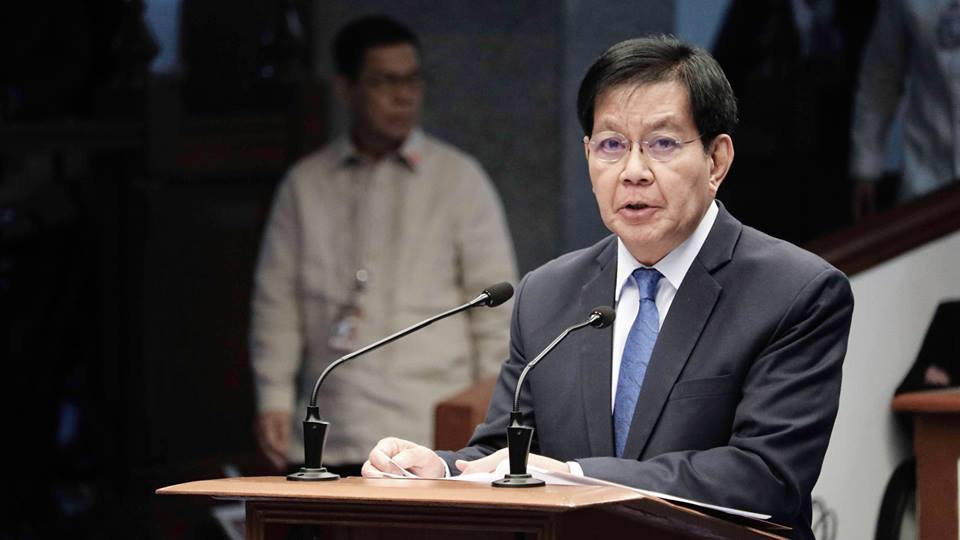
MANILA — Senator Panfilo Lacson on Thursday chided administration critics for hurling “premature and unfair” accusations against President Rodrigo Roa Duterte over the bilateral agreements that the Philippines signed with China during the state visit of Chinese President Xi Jinping in the country.
“I think it is unfair, to say the least, to accuse PRRD of having sold out to the Chinese. Until and unless the executive makes public the MOU’s and MOA’s signed during the Chinese president’s visit, it is premature to draw conclusions like what the usual critics have already made,” Lacson said.
He cited as example the joint oil and gas exploration deal that critics immediately tagged as disadvantageous to the Philippines.
The “memorandum of understanding (MOU) on cooperation on oil and gas development” between the Philippines and China was among the 29 the bilateral pacts that were inked Monday during the bilateral meeting between Duterte and Xi in Malacañang.
On Wednesday, Senator Risa Hontiveros released a statement alleging that Duterte failed to assert the country’s sovereignty and the Constitution in the West Philippine Sea when he signed the joint maritime exploration agreement.
Hontiveros based her statement over a supposedly leaked copy of the agreement.
The opposition lawmaker said that if the leaked document is proven to be authentic, the Philippines is “dehadong-dehado” (in a very disadvantageous position) due to, among others, the absence of a 60-40 equity agreement and the presence of a confidentiality clause.
Lacson, however, pointed out that the MOU signed is just the prelude to the actual negotiations that would follow, and thus, would be bereft of details.
“Paano magiging dehadong-dehado ang Philippines sa joint exploration ng oil and gas sa West Philippine Sea, e MOU pa lang naman ang napirmahan? (How could the Philippines be in a disadvantage on the joint oil and gas exploration of the west Philippine Sea when it is only the MOU that was signed?),” he said.
“It’s a mere convergence of will or desire between parties to follow a common line of discussion. Wala pang details (there are no details yet), no numbers have been discussed as of yet. Ano ba yun? (What is that?),” Lacson said.
And for critics who have been egging the Duterte administration to be transparent on its dealings with China, the lawmaker said that they will just have to wait for Malacañang to release the documents.
“Kakatapos lang ng visit. Sabi naman nila (Malacañang) ilalabas nila and dapat talaga nila ilabas (The visit has just concluded. They said they will release it, and they should release it),” Lacson said.
Besides the joint maritime oil and gas exploration deal, other agreements covering infrastructure development, agriculture, education, and information and communications technology were inked during Xi’s visit.
Among them are the MOU on Cooperation on the Belt and Road Initiative; MOU on Basic Education Cooperation; MOU on strengthening the building of agricultural cooperatives; Infrastructure Cooperation Program; MOU on Jointly Promoting the Cooperation in Key Infrastructure Projects in Davao Region; Implementation Agreement the Feasibility Study for Davao City Expressway Project and the Implementation Agreement of the Feasibility Study for Panay-Guimaras-Negros Island Bridges Project.
Also included are the MOU on Renminbi Clearing Arrangement; Protocol of the Phytosanitary Requirements for Export of Fresh Young Coconuts from the Philippines to China; MOU on Panda Bonds Issuance; Loan Agreement on New Centennial Water Source-Kaliwa Dam Project; Commercial Contract of Safe Philippines Project, Phase I; and the Contract for the Project Management Consultancy of the Philippine National Railways South Long-Haul Project (North-South Railway Project) among others.